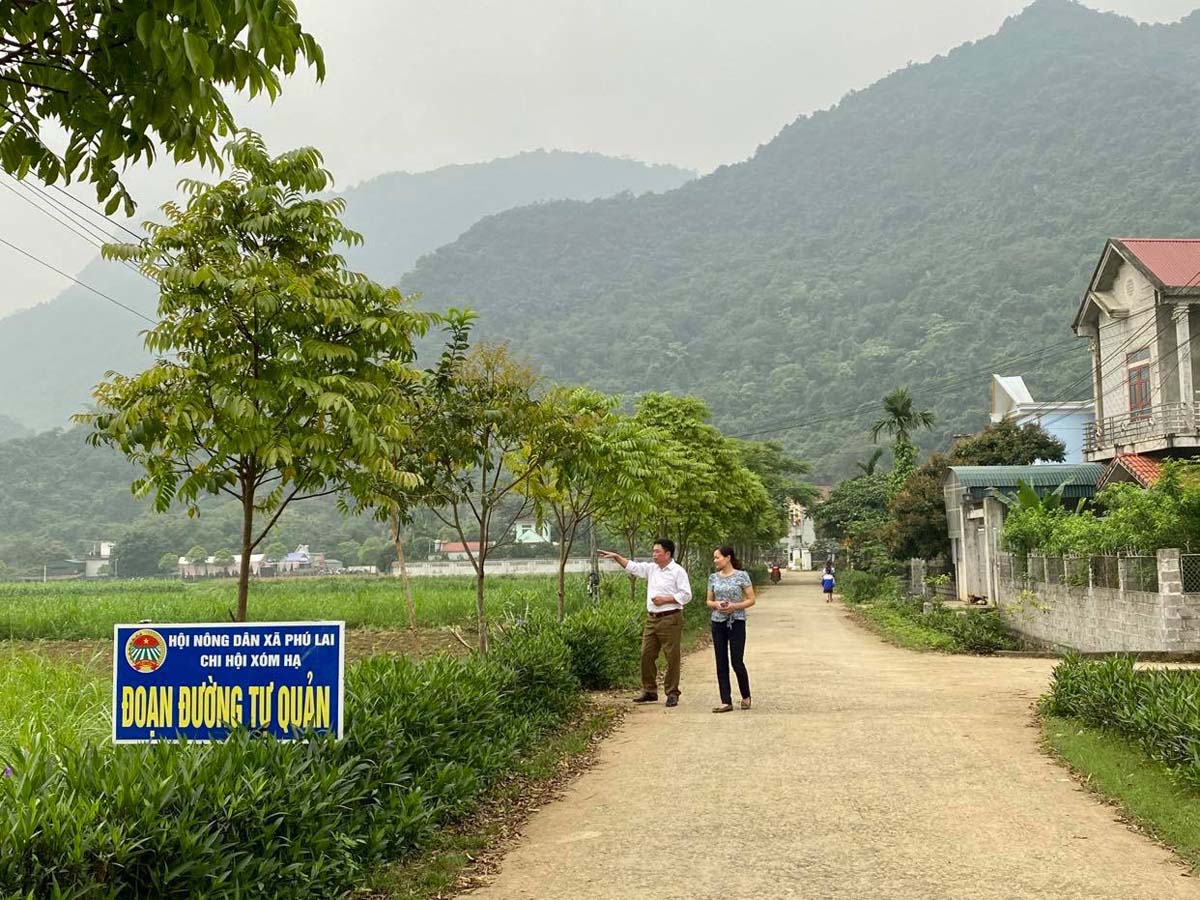
(HBO) – Ha hamlet in Phu Lai commune, Yen Thuy district, was recognised as a model new-style rural residential area for the 2018 - 2020 period. It is home to more than 140 households of three ethnic groups, with 95 percent belonging to the Muong ethnic group. Over the past years, local residents have united and actively engaged in emulation movements, especially the one on building new-style countryside and civilised cities in tandem with the "All people stay united to develop a civilised lifestyle” movement.
 Roads in Ha hamlet of Phu Lai commune, Yen Thuy
district, have been kept clean and beautiful thanks to joint efforts by local
residents.
Roads in Ha hamlet of Phu Lai commune, Yen Thuy
district, have been kept clean and beautiful thanks to joint efforts by local
residents.
Local people have joined hands to help their
hamlet meet the basic criteria of a new-style rural area. So far, more than 90
percent of inter-field paths have been paved while 65 percent of inter-field
irrigation canals and 87 percent of rural roads concretised.
Every year, all local households register to
become cultural families and take part in building new-style rural areas. The
percentage of households recognised as cultural families is always 85 percent
and above. In 2020, up to 130 of the 137 local households, equivalent to 92.1
percent, earned this title.
Besides, Ha hamlet has also stayed free of
people committing crimes or law violations. The school enrollment rate among
school-age children is 100 percent, while the annual percentage of students
with good and excellent academic performance is continually higher than 70
percent.
Apart from a civilised lifestyle, local
livelihoods have also been increasingly improved, with per capita income
reaching 43 million VND (about 1,800 USD) in 2020. The number of poor
households has been brought down to six, equivalent to only 0.04 percent. The
hamlet is now free of makeshift houses.
Annual campaigns calling for support for the
poor and expressing gratitude to revolution contributors also attract great
support from the public./.
Phong Phu commune, Tan Lac district of Hoa Binh province, is widely regarded as the cultural heartland of the Muong ethnic group. Among its many traditional communities, Luy Ai hamlet (formerly Ai hamlet) stands out as a rare location where the customs and way of life of the Muong Bi people remain largely intact.
The Truong Kha temple festival, a distinctive cultural event held every three years in Vu Ban township, Lac Son district, returned recently with vibrant rituals and folk traditions of the Muong people. Located next to the Buoi River in the Muong Trao fields, the Truong Kha Temple is dedicated to the three Kun Dol deities, revered for teaching farming techniques, irrigation, weaving, and protecting the harvest.
The demand for spaces serving community activities of residents in various areas across Hoa Binh city has been satisfied as local cultural houses now feature modern, spacious facilities thanks to the effective implementation of Resolution No. 49/NQ-HDND issued on December 28, 2021 by the city People's Council, which approved the plan for reorganising, converting, and allocating land for the construction, repair, and expansion of cultural houses in Hoa Binh’s villages and residential areas until 2025.
At the end of May, the Hoa Binh Provincial Ethnic Arts Troupe organized a series of performances for residents in Region 2 and Region 3 communes across the province. Bringing art to ethnic communities in remote, isolated, and especially disadvantaged areas has become a meaningful activity. These are not merely artistic performances but also journeys to disseminate cultural values, enrich spiritual life, and contribute to preserving the cultural identity of ethnic minorities.



 Roads in Ha hamlet of Phu Lai commune, Yen Thuy
district, have been kept clean and beautiful thanks to joint efforts by local
residents.
Roads in Ha hamlet of Phu Lai commune, Yen Thuy
district, have been kept clean and beautiful thanks to joint efforts by local
residents.